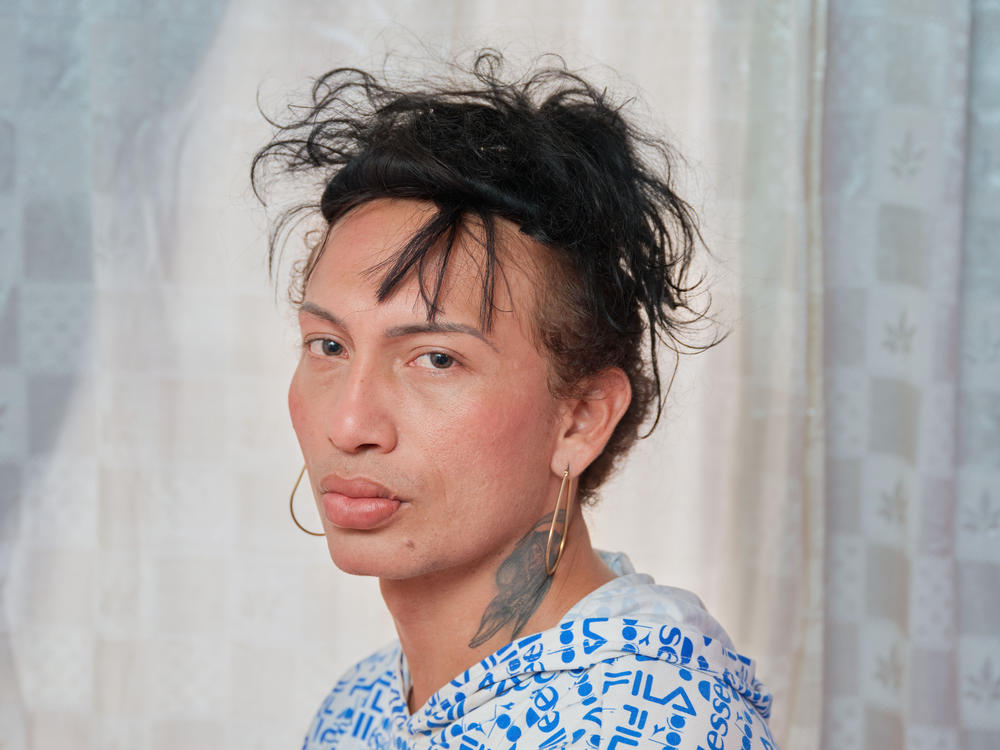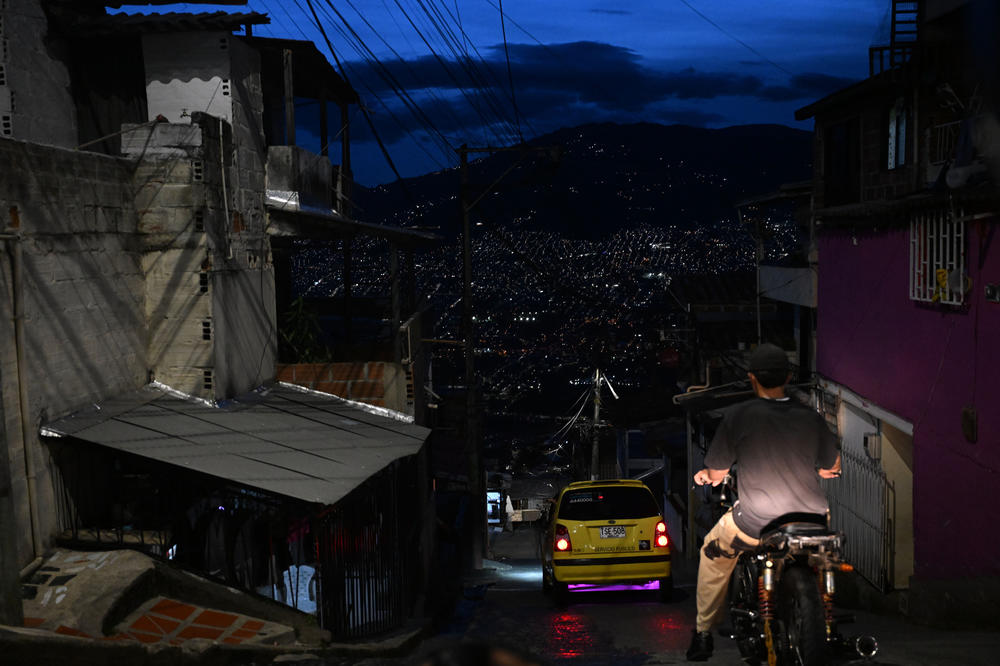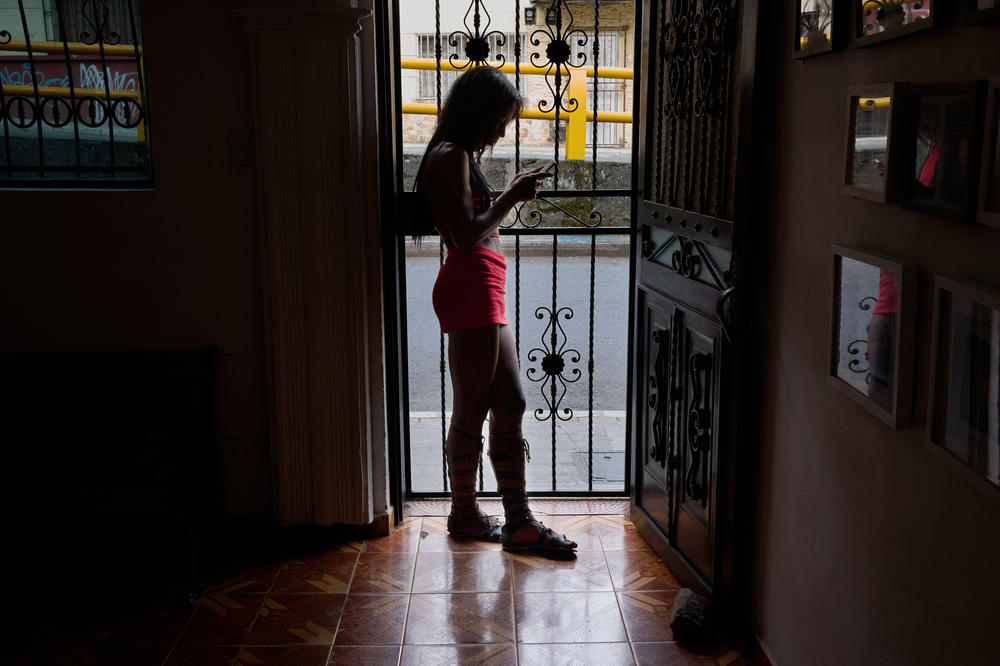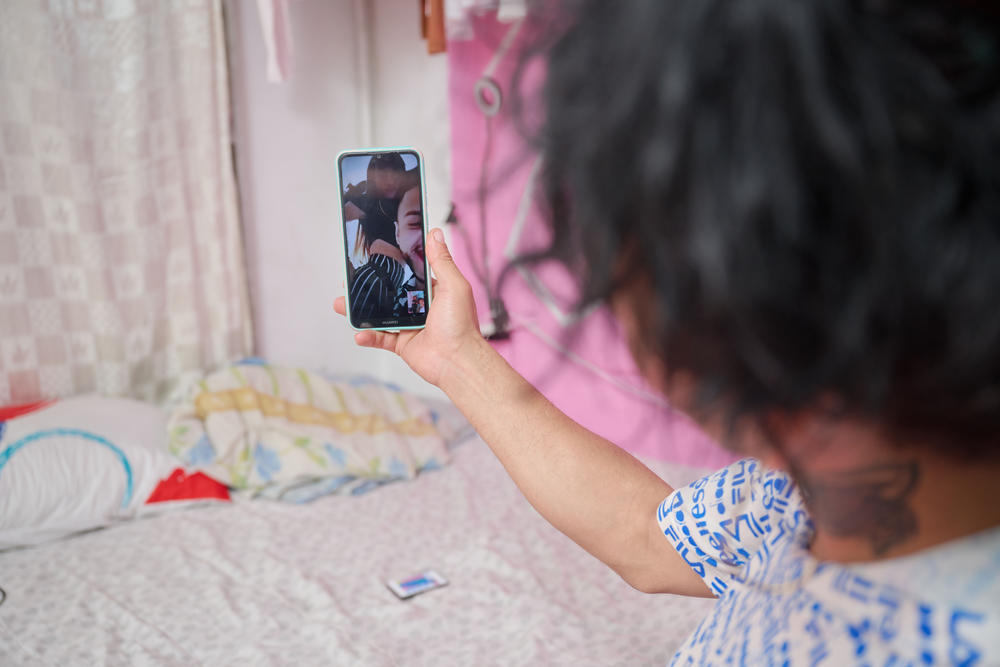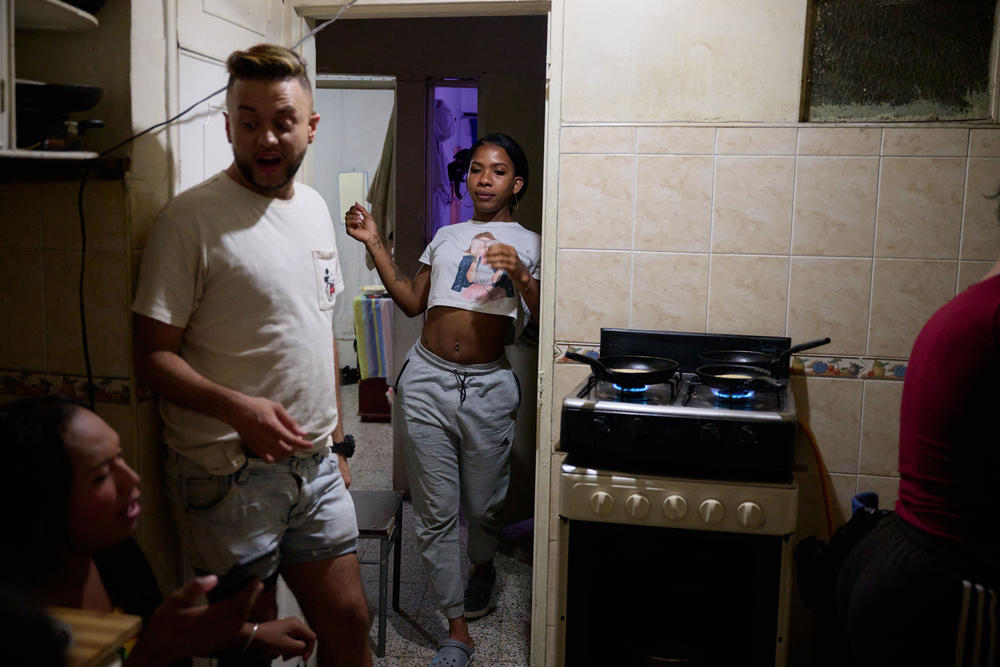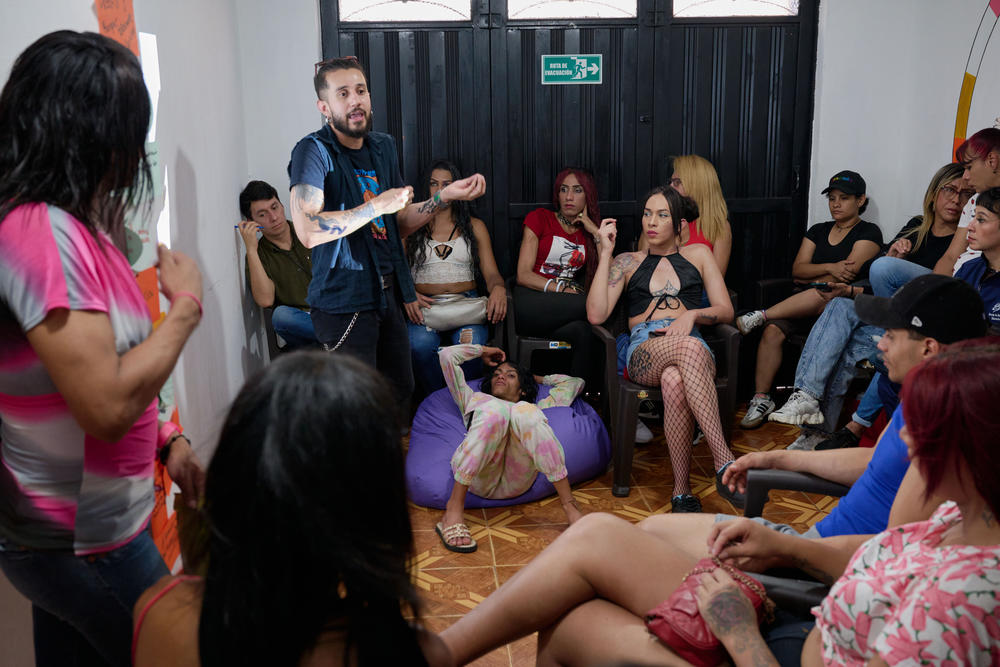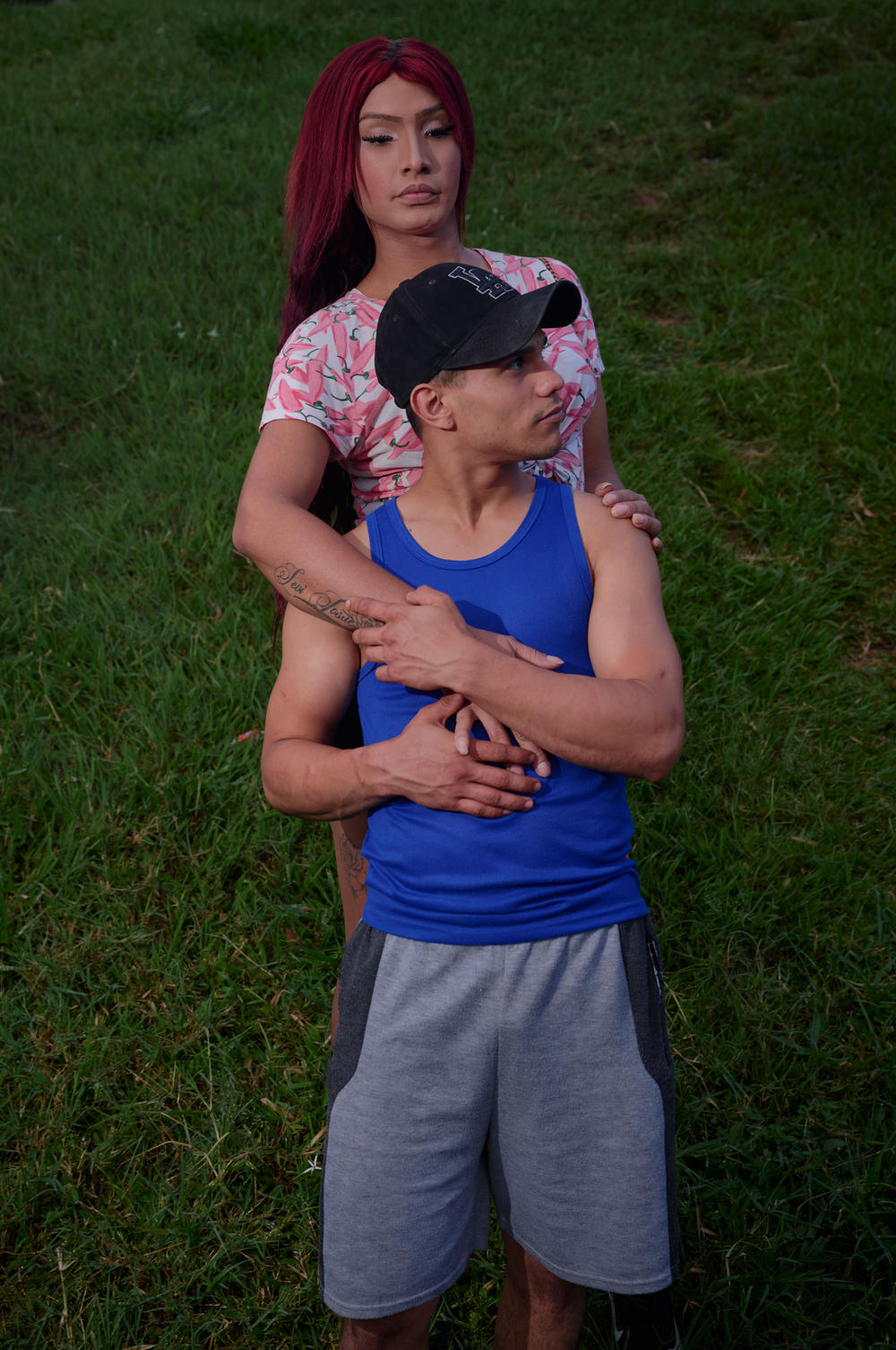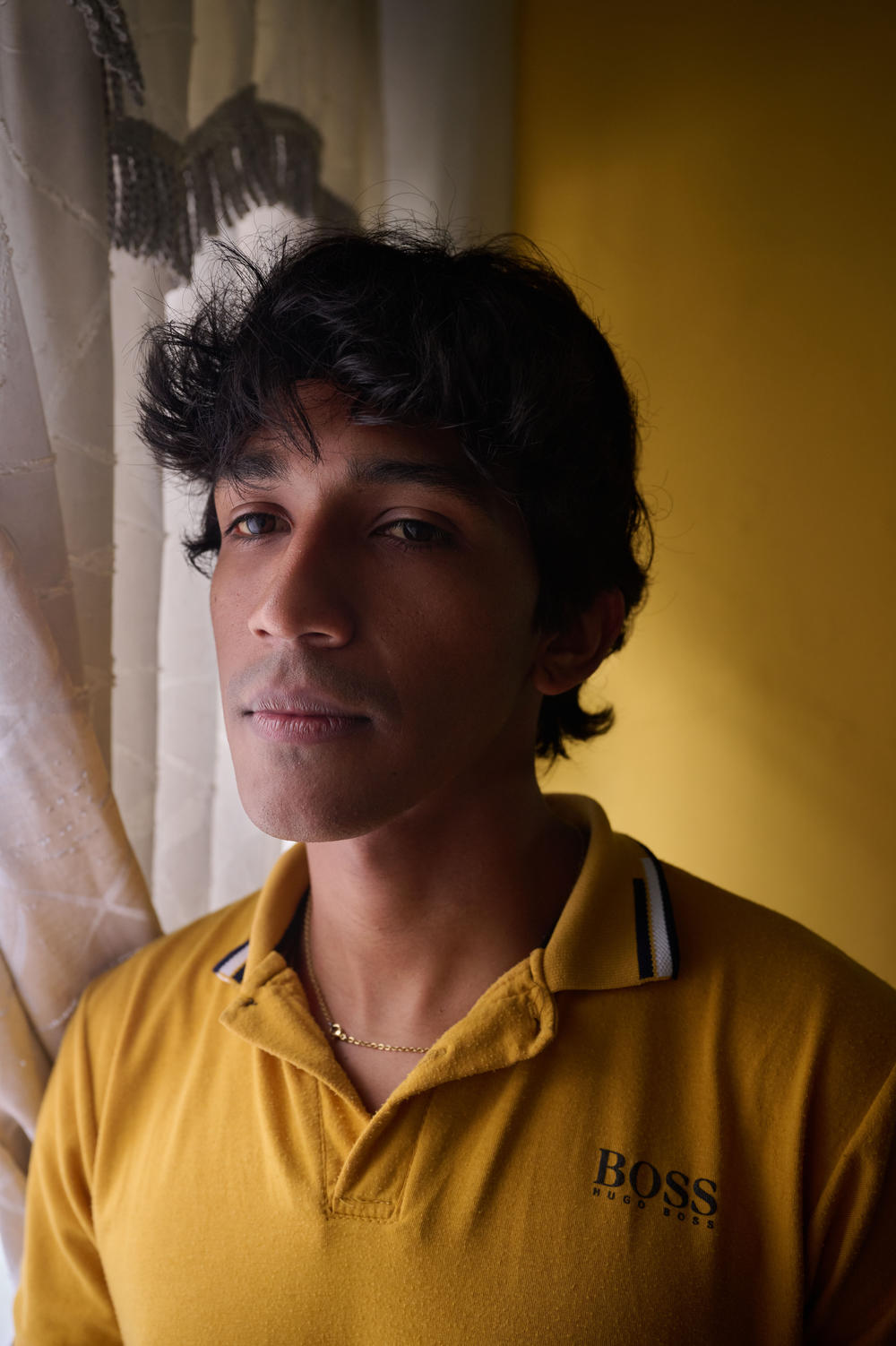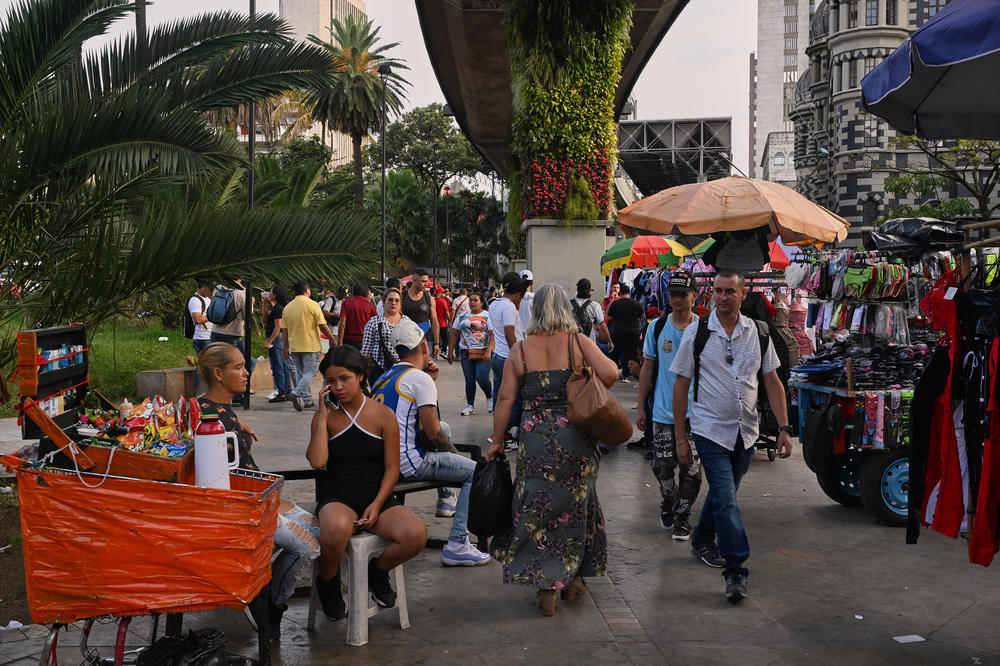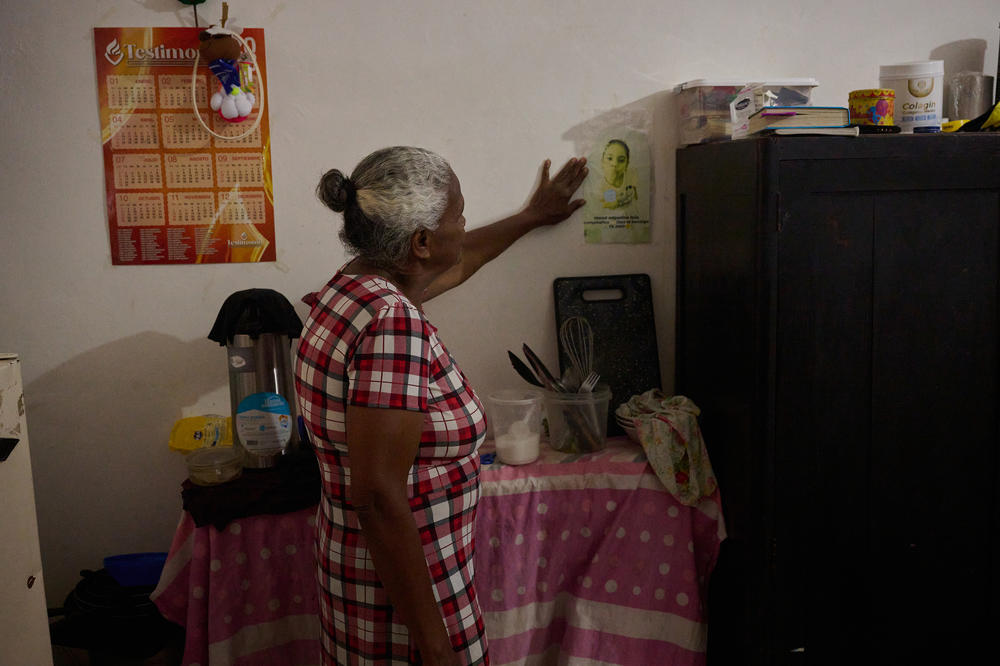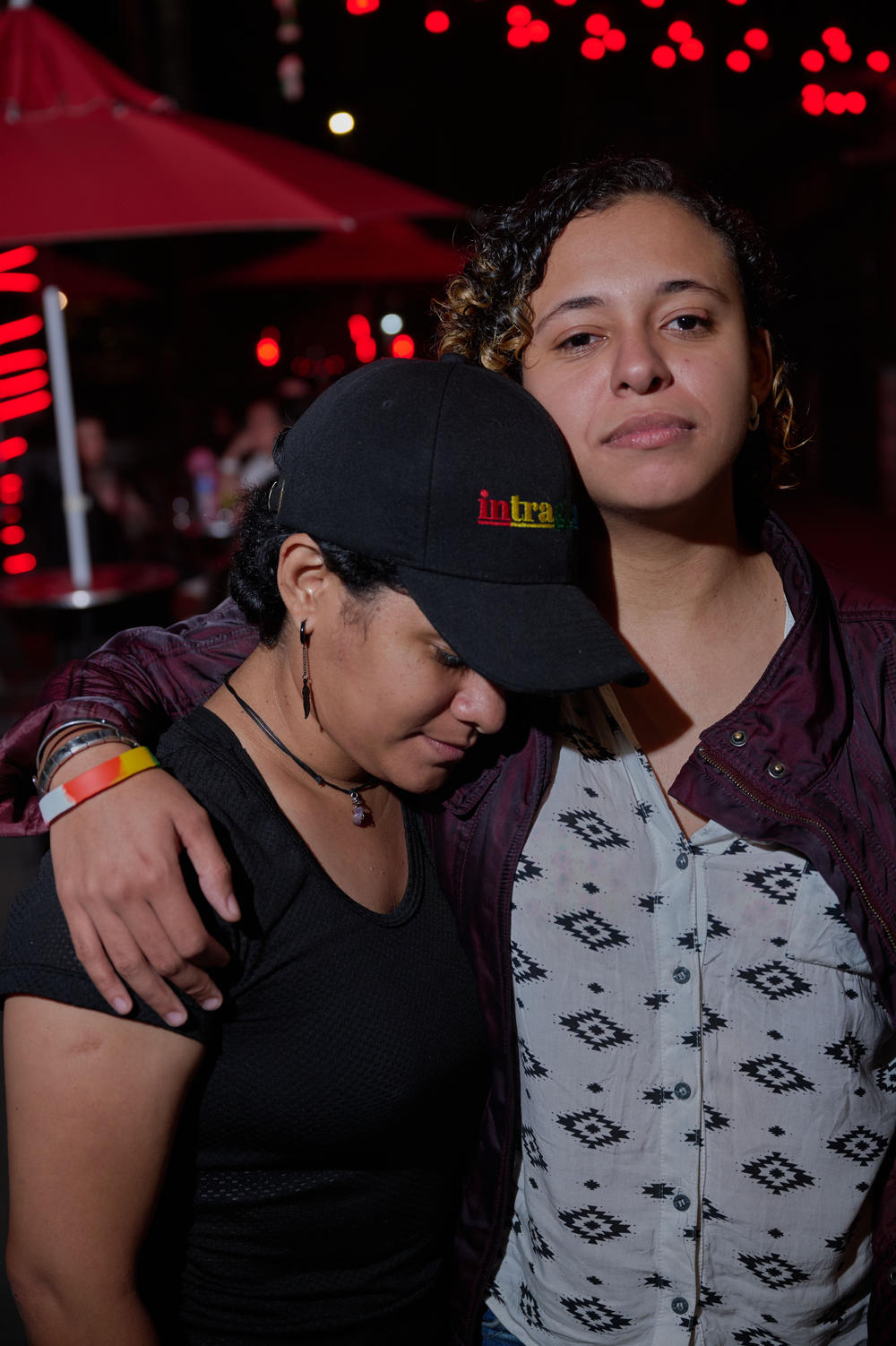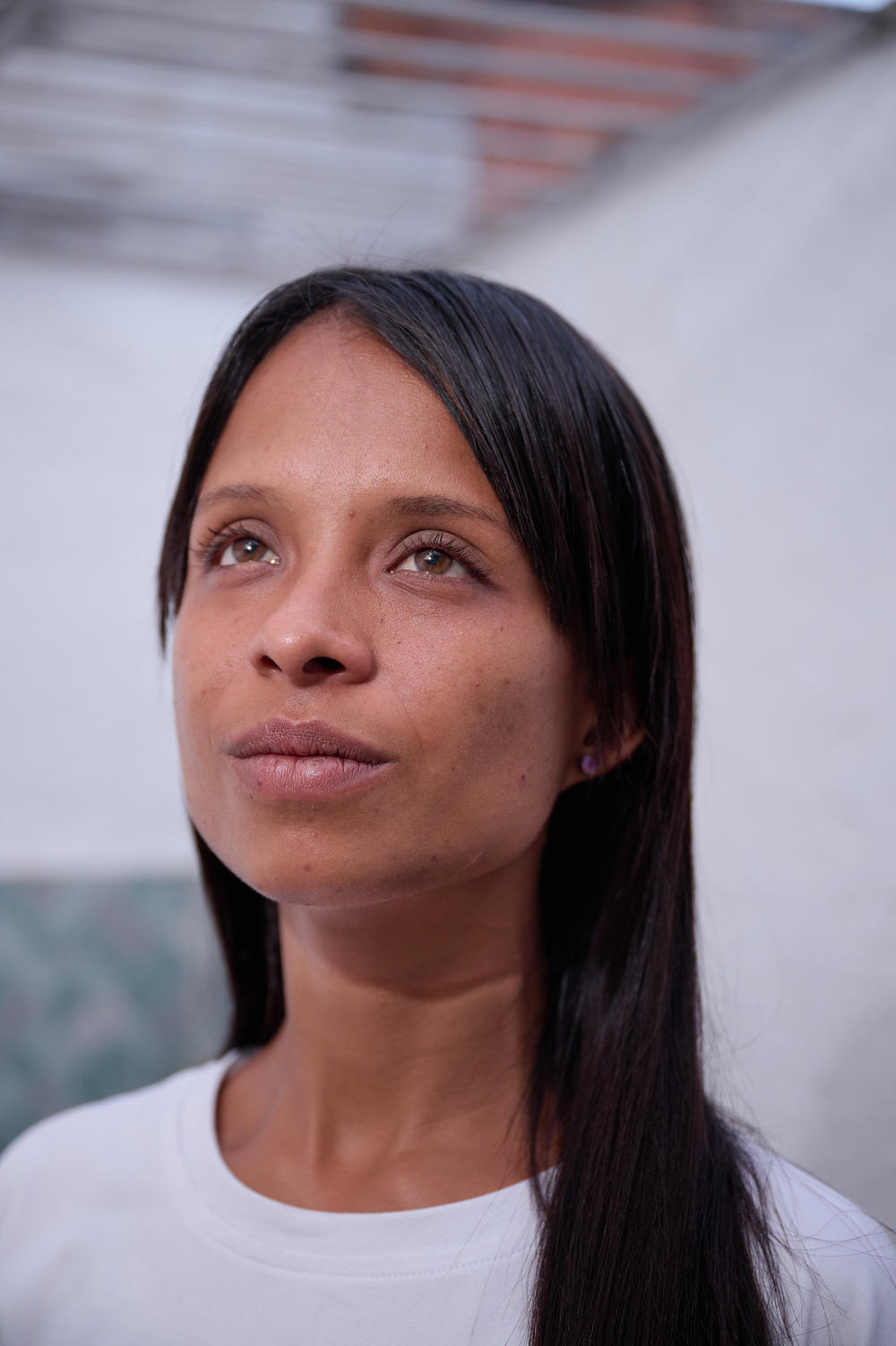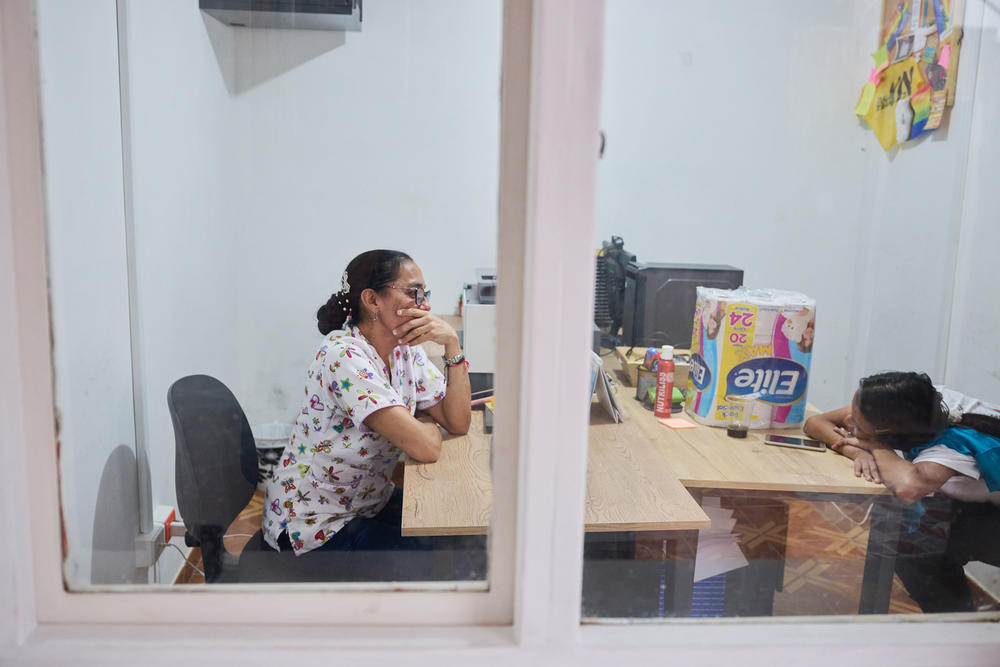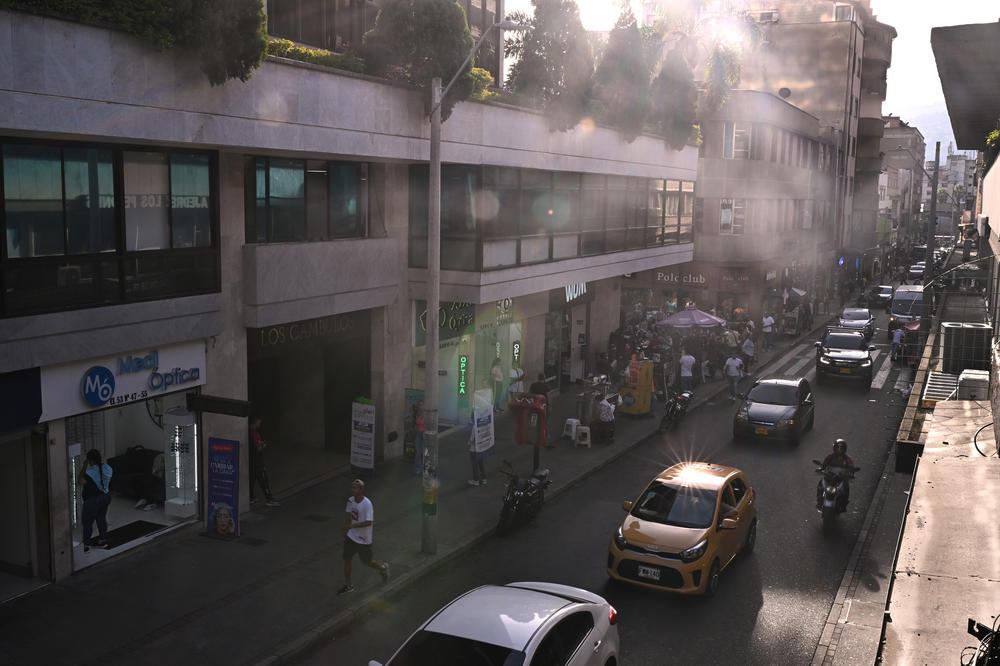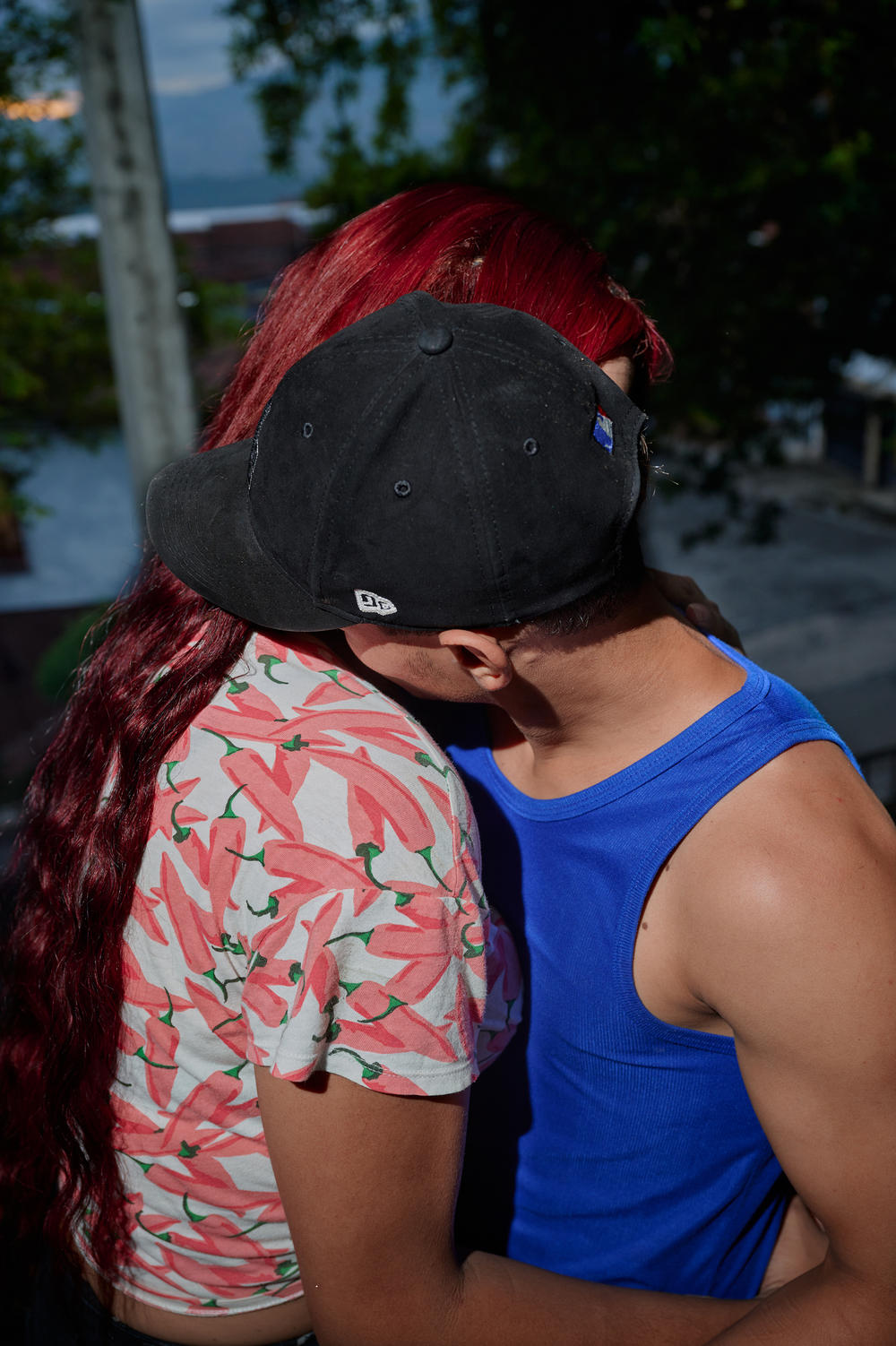Section Branding
Header Content
Displaced and Queer: These Venezuelans find community despite the obstacles
Primary Content
For more than a year, Venezuelans have been making the dangerous trek to the United States through the Darién Gap, in unprecedented numbers. However, the United States was not the first destination for Venezuelans fleeing their country's instability. Due to the ongoing socio-political crisis (including hyperinflation, censorship and violence) in Venezuela, nearly 7 million people have left the country in the past decade. Displaced, often moving numerous times across Latin America, Venezuelans have been met with hostility and a lack of jobs. Being queer in the region only complicates that reality.
Colombia has been the de facto country for Venezuelans to emigrate to since the beginning of the crisis. Geographically close and culturally similar, it makes sense. About 2.5 million Venezuelans now live in Colombia.
But recently, cities like Medellín have become a stopover as people plan their route to the United States, rather than a final destination. Medellín is a bustling cultural and technological hub of Colombia, investing in transportation, infrastructure and the arts while promoting progressive and inclusive rhetoric that transformed it into a destination for digital nomads and queer tourists.
These hot spots are concentrated in the Poblado and Laureles neighborhoods, while downtown Medellín and its surrounding barrios (hillside neighborhoods) are where working-class residents live, and where migrants end up.
The city's progressive reputation and modern infrastructure have made it a hot spot. In practice, as told by nonprofit coordinators and migrants themselves, it's little more than empty promises:
Charloth Chirino, 35
Zulia, Venezuela
Charloth first left Venezuela over six years ago, during the height of the crisis. Moving around her home country, the crisis followed her, and she decided to head for Colombia, where she lived in small towns before making it to Medellín three years ago.
Tonight, she kneads dough in her kitchen, preparing dozens of arepas for her friends. They stop by nightly for a few arepas during a lull at work. "A lot of them don't have kitchens, they live in hotels — so I tell them to come over, that way they'll get at least one meal today."
Within an hour, her compact-sized kitchen is full of friends eating and gossiping. Her roommate, Angie, joins in the kitchen later on. Only being back in Medellín a few months, Angie is uneasy about receiving new clients at home and feels safer knowing Charloth is around.
Originally from Zulia, Venezuela, Charloth has become known for her roles as a mother, friend and activist for the LGBTQ+ community in Medellín. But her instinct has been to care for others since she was a teen. At only 15 years old, Charloth began to transition with the support of her family. She made it a habit to open up her home to friends who weren't so lucky.
Charloth has worked as a sex worker since her transition. She plays with her dog, Diana, as she talks about the risks. "It's not less dangerous here. Do you know how many girls I know who've just ... disappeared? In Venezuela, it was more of a territory thing. Here, anybody can get you."
While she doesn't think she'll stay in Medellín forever, she has found community through Caribe Casa Afirmativa — a nonprofit focused on human rights for all that works in various parts of Colombia. In Medellín, the Casa Afirmativa initiative is specifically focused on helping queer migrants, the majority of whom are Venezuelan, and others displaced from their hometowns in Colombia due to armed conflict. Through Caribe, Charloth has co-founded a collective called Intragender, bringing light to domestic violence among the queer and trans community.
Samantha Montiel, 25, and Levi Josue Carballo Villamizar, 20
Zulia and Valencia, Venezuela
As a Casa forum lets out, Samantha cries as she recounts why she migrated to Colombia. Since she was 13 years old, Samantha worked to take care of her family, but when the crisis hit, her hair salon job wasn't enough. So she crossed the border — then walked from the border town of Cúcuta to Bogotá. Her plan was to find a similar job and, in a more stable economy, make enough to bring back to take care of her mother, who was battling cancer. "I never wanted to leave ... let alone for years." Samantha's mother passed away before she could return home.
Levi holds Samantha's hand as she talks about her mother. Their love grounds them both. As she remembers, it was love at first sight. Levi was selling trinkets in the Bolivar Park downtown when they first met, and they haven't been apart since. At 16 years old, Levi was abandoned by his dad in Medellín, after emigrating only a year before. Samantha took him in. She recalls, "Sometimes we've been on the street, we've gone hungry, but we get through it together."
While much of South America has created barriers to Venezuelan migration, the Colombian government has initiated policies like the Temporary Protection Permit to give Venezuelan refugees documentation that grants access to education, health care and other basic rights. For Samantha, it is a worthless piece of paper. "Nobody ever accepts it. They ask for my Venezuelan ID instead, then they discriminate because of where I'm from. It's useless."
Samantha and Levi dream about a home — maybe in Medellín, but they dream about Miami. Currently, they rent a room where visitors aren't welcome. Levi mentions that for every person who is arriving in Medellín, 10 are leaving to go further north. They don't have a plan, but they dream and put their faith in God.
David Enrique Salcedo, 28
Aragua, Venezuela
David sits in his bedroom, which also functions as a makeshift kitchen he and his mother use to store their pots and plates. The room has clustered suitcases full of their clothes. They live in a house where each room is rented, so they fill their private bedroom with all their belongings. His mother moves in and out of the bedroom, taking a pot to boil water and shuffling back in to pour the water through a cloth coffee filter on a shelf.
David wasn't planning on moving to Colombia. The youngest sibling, he was in Maturín, Venezuela, with what family he had left when his brother asked him to accompany his wife and children to reunite with him in Medellín.
He remembers the day he left, as most people I spoke with do. They were packed and ready to leave in the early hours of the morning when gang members came to his door and robbed them. David left with only one backpack and his bus pass. "They threatened us. They knew us and where we lived. At that point, I knew I had to leave, si o si."
David hoped to make it to Peru, where his dad is from and resides, but was not able to get in touch with him. "Once I got here, I forgot about my hopes of moving to Peru. I realized life is much harder than people describe. They say to come, that there are good jobs, and then you get here and realize it just isn't true."
Having moved around Venezuela a lot as a kid, David was used to new places. As a fem-boy, he refused to make himself smaller to avoid harassment. "If I'm going to live, I'm going to do it as I want." He recalls wearing ripped jeans and tiny crop tops in dangerous towns in Venezuela without caring about the gangs and threats. "I used to joke back at them, like, 'Oh you like this?' "
That same attitude has gotten him through a lot of moments of harassment in Medellín, but not because of his sexuality or how he dresses — because of where he's from. He recalls being insulted and blackmailed by a boss, so he quit. For a time, he did webcam work but didn't like it. "I thought it was for modeling ... I got there and, well, it wasn't that. I tried, the money was good, but I just couldn't." Since then, he's worked odd jobs, which at least was enough to bring his mother over to be with him.
A few friends have left to cross the Darién, but David doesn't dream of the States. "Italy ... I'd love to go there — technically, I have Italian ancestry; it'd be nice to know those roots."
Taysha Sofia Milgraos Barroso Vera, 26, and Dalifran Carolina Vargas Bencomo, 32
Caracas and Zulia, Venezuela
Seven years ago, Taysha — Tay — boarded a bus in Puerto La Cruz, Venezuela. Her one friend who was left in the country waved goodbye from the street. She was going to Cartagena with a $10 bill folded up inside her sock and plans to cross the Guajira Desert. The journey was risky. A driver drove a car full of people through the Guajira-controlled no man's land, where they passed armed checkpoints run by locals. The driver paid at each checkpoint until they had to continue by foot. Tay was stopped by a migration officer who made her strip down. She thought she'd have to give up her last $10, which was going to get her from the border to Cartagena. Luckily, the officer got distracted, and she found a few bolívares — enough to be let go and continue on her way.
She was in Cartagena for a short time, cleaning motorcycles at stop lights to pay off her lodging expenses to the man who owned the house she lived in.
Tay never felt like Venezuela was home and she doesn't dream of going back. Most of her friends have emigrated, so what would she go back to, she wonders. In Medellín, where she's lived for years now, she's found meaning through her friends, her partner, Carolina, and her activism work.
"I feel like my activism, my whole identity defines me more than 'migrant.' I'm more than that."
Livia Gonzalez, 26
Caracas, Venezuela
Livia, 26, lays her head down on the desk as a Casa employee helps her reach her family in Caracas. Due to health emergencies, her family hasn't been able to take care of Livia's daughter. She's spent three days trying to reach her since the father cut off communication. The stress reads on her tiny frame.
Livia has been moving around Colombia and Ecuador for four years. She left Venezuela to send back money for her daughter, who has a chronic health condition. Livia herself suffers from a heart condition. When she first got to Medellín last year, she was promised a job. She later found out that her options were to sell drugs or be a sex worker. She refused and now sells lollipops on the street, living in a room she rents weekly. "I'm going back to Venezuela. I can't make it here. If I didn't have my daughter, I'd go to the U.S. — or at least try. But she's growing so fast and she misses me. I owe her a lot of Christmases..."
Lexi Parra is a documentary photographer based in New York City. You can see more of her work on her website, LexiParra.com, or on Instagram at @lexigraceparra.
Photos edited by: Virginia Lozano
Text edited by: Zach Thompson
Copyright 2023 NPR. To see more, visit https://www.npr.org.
